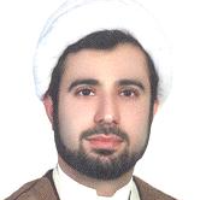مقالات رزومه دکتر محمد حسین شریفی
-
SUBJECT & OBJECTIVES
The objective of the article is to provide evidence on the impact of mysticism on the Islamic Republic of Iran through the figure, thought, and legacy of Imam Khomeini. To achieve this, the article discusses the relationship between the political thought of Imam Khomeini and his mystical and philosophical views on society and life.
METHOD & FINDINGThe descriptive-analytical method is used to state the role and impact of mysticism on the Islamic Revolution by analyzing and comparing Imam Khomeini’s texts and speeches on the topic. Imam Khomeini was a devoted scholar who brought Islamic mysticism to the public realm of discussion, both within the religious seminary system and in the public arena of institutional discussions around the formation of the Islamic Republic.
CONCLUSIONImam Khomeini revolutionized the clerical attitude towards politics and proved that religion was still relevant as an ideology capable of building a Modern society. His success in mobilizing his followers went beyond as he achieved this in a historical moment where the discourse of Westernization posed a threat to Iranians. Also, conveyed the revolutionary movement in a unique language featuring connotations of martyrdom, justice, freedom, and political and sociocultural independence. He emphasized the need to revitalize religion through the guidance of jurists and clerics while referencing the mystical traditions of Islam, which highlight its universality and transcendental importance.
Keywords: Mysticism, Spiritual Journey, Religion, Politics, Islamic revolution, Imam Khomeini} -
زکات یکی از مهمترین فروعات مالی دین مبین اسلام است که در آن حمایت از اقشار آسیب پذیر و تقویت دین اسلام هدف گذاری شده است. «تالیف قلوب» به عنوان یکی از موارد مصرف زکات، ریشه در قرآن دارد و هدف از پیش بینی این نهاد، همدلی و جست وجوی روابط دوستانه و نیز جلب همکاری در حفظ صلح و امنیت جوامع اسلامی است. مفهوم و قلمرو تالیف قلوب و نیز چگونگی کاربست آن در زمان معاصر از جمله مسائلی است که نیازمند پژوهش است و تحقیق حاضر با رویکرد فقه تطبیقی به این مسائل می-پردازد. برآیند مقاله این است که «تالیف قلوب» مفهومی گسترده دارد که هدف آن از یک سو جلب همدلی افراد صاحب رای و نفوذ برای همراهی و همکاری با جوامع اسلامی است و از سوی دیگر، تقویت باورهای دینی و مکتبی مسلمانان در آن پیش بینی شده است. جست وجوی راه های همدلی با جوامع اسلامی هم اکنون نیز در قلمروهای صلح و امنیت، دعوت و تبلیغ اسلامی و حمایت از فعالیت های علمی و فرهنگی قابل تطبیق است.کلید واژگان: زکات, تالیف قلوب, فقه تطبیقی, فقه سیاسی, کمک های بشردوستانه, جهاد و دفاع}ZakÁt (amount payable by a Muslim as a part of his religious obligation) or charity tax is one of the most important financial issues in the true faith of Islam whose function can be defined as either supporting those who have poor living conditions or promoting and strengthening Islam. Uniting the hearts, as one of the objectives achieved by consuming ZakÁt, has its roots in the Holy QurÁn. This institution is intended to promote sympathy between people, establish friendly relations and to encourage cooperation in maintaining peace and security of the Islamic nations. The concept and scope of uniting the hearts and the way in which it functions in the present-day situation are among the questions which need to be investigated. The present article deals with these issues drawing upon an approach to comparative jurisprudence (fiqh). The article concludes that uniting the hearts or talif-e qulÙb is of a broad sense whose aim is to attract sympathy from those who are influential in society and who have the power and authority to call for cooperation with Islamic societies on the one hand, and to promote and strengthen the doctrinal and religious beliefs of the Muslims on the other. Seeking the ways in which Islamic societies can create and show sympathy towards each other and other nations are now within the scope of peace and security, inviting others to Islam, Islamic propagation and supporting scientific and cultural activities.Keywords: ZakAt, uniting the hearts, comparative jurisprudence (fiqh), political jurisprudence, humanitarian aid, Jihad (the Muslim holy war), resistance against enemies (defense)}
- : 1
- این فهرست شامل مطالبی از ایشان است که در سایت مگیران نمایه شده و توسط نویسنده تایید شدهاست.
- مگیران تنها مقالات مجلات ایرانی عضو خود را نمایه میکند. بدیهی است مقالات منتشر شده نگارنده/پژوهشگر در مجلات خارجی، همایشها و مجلاتی که با مگیران همکاری ندارند در این فهرست نیامدهاست.
- اسامی نویسندگان همکار در صورت عضویت در مگیران و تایید مقالات نمایش داده می شود.



